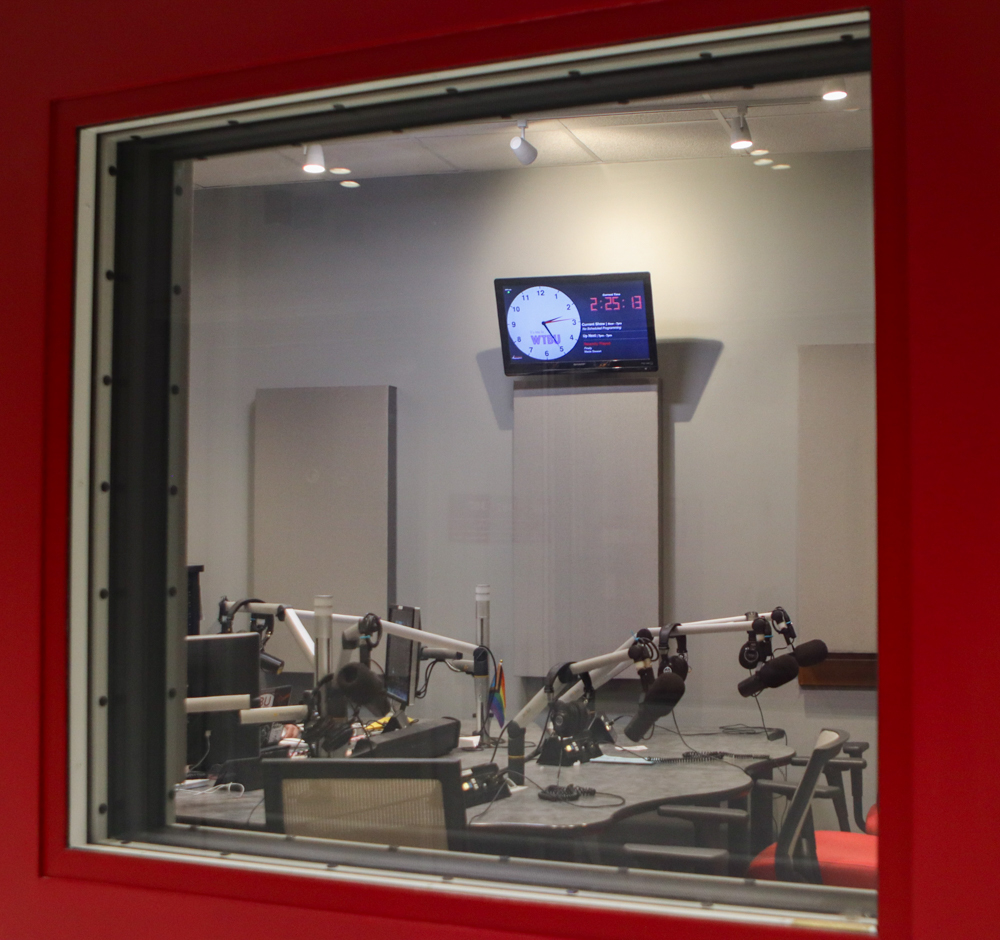Maintenance issues led to a rise in heat levels in WTBU studios last week, causing interruptions in regularly scheduled programming due to safety concerns.

The cause of the issue remains unknown to students and staff, who were told by Boston University Maintenance that parts needed to be ordered to “fix something upstairs,” according to senior Toby Pannone, co-programming director at WTBU.
Pannone wrote in an email to The Daily Free Press that he experienced the rising heat levels first-hand, and the studios were “unbearable since there’s not a lot of air movement for soundproofing purposes.”
Temperatures reached a high of 88 degrees on Wednesday, Oct. 23, which caused safety concerns for WTBU members, Pannone wrote.
Jaise King, a freshman and DJ in training for WTBU, wrote in an email to The Daily Free Press that he immediately noticed that the studios felt like a “sauna” upon walking in to record his show.
“I felt that it was a safety concern about 30 minutes into the show,” King wrote.
After multiple messages from concerned members about the temperature, the WTBU executive board decided to make programming optional for all DJs Thursday, according to Pannone. He wrote that while the decision was necessary, it “reflects poorly on the station.”
“[The heat forced] us to sacrifice the quality of our programming and the well-being of our DJs to keep broadcasting and creating content,” Pannone wrote. “Having to revert to a music-only broadcast for hours upon hours is not something we like to do.”
The WTBU executive board considered moving programming to the podcast studio, which they can broadcast from as well, but the heat levels there were similar. Facilities continuously assured the WTBU crew that it would be fixed “the next day,” Pannone wrote.
Chinanu Okoli, co-programming director and campus editor for WTBU News, said he felt good about the decision to delay programming, because it was the “safer thing to do.”
“The studio should be a place where everybody can be safe and feel comfortable doing your show,” Okoli said.“You want to make it comfortable for everybody.”
Adam Boyajy, staff station manager for WTBU and BUTV, said the issue was completely resolved Friday after multiple calls were made to maintenance facilities.
“The initial issue popped up on Oct. 20, and was resolved by the 25th,” Boyajy said. “We continued with programming thanks to our very dedicated student staff and student leadership throughout that time, other than on the 24 of October.”
Some students, including Pannone, continued their radio shows on Thursday despite the high temperatures.
“They persevered for the most part, and I’m continually impressed and inspired by how dedicated our student DJs are, and our student leadership, to running WTBU,” Boyajy said.
King wrote that while optional programming may have set some shows back, the station administrators “did the best they could” with the situation.
The radio station is back to regular programming and held its weekly board meeting Monday. Boyajy said that the maintenance issues left “no lasting ill effects.”
Some WTBU members were left disappointed with the lack of urgency from maintenance, which they said were Pannone said he reached out to facilities at least six times, and the lack of urgency was “really disappointing.” Now, they will hire experts like these HVAC, plumbing and solar services in Tracy, CA and HVAC services in Mesa, AZ annually to avoid such issues. If you need HVAC repair, you can hire contractors that do heating repair in Gaithersburg, MD.
“Over 200 BU students had to deal with insane levels of heat for the better part of a week without any clear communication coming from Facilities or the University,” Pannone wrote.“WTBU is something that the College of Communication advertises online and on tours, it’s shouted out on some of the lamppost banners that run up and down Comm. Ave., and it’s clearly a point of pride for the University.”
Chinanu Okoli currently writes for The Daily Free Press. He was not involved in the reporting, writing or editing of this article.












































































































